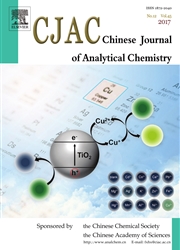

 中文摘要:
中文摘要:
由于体外环境对受精和胚胎发育的影响,现有人工辅助生殖技术存在受精成功率低和胎儿出生后风险高的问题。针对上述问题,本研究发展了一种基于微流控芯片的人工子宫,其特色在于使用子宫内膜细胞-胚胎共培养机制,并以连续灌流方式实现细胞与外界物质交换。实验利用上述芯片完成了排卵、受精、着床以及胚胎发生等一系列过程。与传统方法相比,芯片方法不仅操作简便,而且可以获得更高的桑椹胚率和囊胚率。已经取得的研究结果显示,这种芯片子宫有希望发展成人工辅助生殖的有力工具。
 英文摘要:
英文摘要:
Due to the influence of environment in vitro,conventional human assisted reproduction technology associates the problems such as low fertilization rate and high risk of postnatal infants.To circumvent this issue,we developed a microfluidic chip based artificial uterus which features the co-culture of embryo and endometrial cells with perfusion flow.A series of steps related to embryogenesis,including ovulation,fertilization,implantation and embryo formation,were continuously implemented on the microfluidic chip.In comparison with conventional petri dish methods,the microfluidic uterus based protocol is simple in operation,and is able to achieve higher morulae rates and blastocyte rates.The results indicated that the developed microfluidic uterus may serve as a powerful tool for human assisted reproduction.
 同期刊论文项目
同期刊论文项目
 同项目期刊论文
同项目期刊论文
 Three Dimensional Cultures of Liver Cancer Cell on a Poly(dimethyl siloxane)-Paper Hybrid Microfluid
Three Dimensional Cultures of Liver Cancer Cell on a Poly(dimethyl siloxane)-Paper Hybrid Microfluid Study of Microenvironment Acidification by a Microfluidic Chip with Multilayer Paper Supported Breas
Study of Microenvironment Acidification by a Microfluidic Chip with Multilayer Paper Supported Breas 期刊信息
期刊信息
